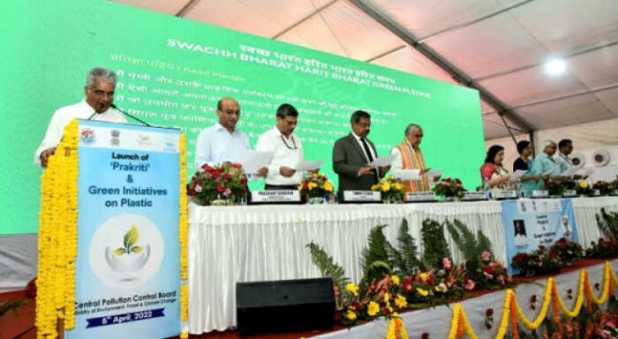
New Delhi, April 5 : on Minister for Environment Forest and Climate Change, Bhupender Yadav said on Tuesday that the IPCC working Group III report on ‘Mitigation of Climate change’ underlines the need for deep and urgent global emissions reduction and its justifies India’s view on climate change. Speaking at an event here in New Delhi, the Minister welcomed the report and said “The report fully supports India’s view on the necessity of public finance for developing countries and the need for scale, scope and speed in Climate Finance” he said. “The report also justifies India’s emphasis on equity at all scales in climate action and sustainable development” he added. Yadav also said that the report notes that both cumulative and per capita annual emissions rose during the pre-2020 period. “Pre-2020 emissions reductions in developed countries have been insufficient in comparison to the developing world’s needs for sustainable development. Both historical cumulative emissions and per capita annual emissions show that India’s role (as part of South Asia) is minimal.” he said. The Minister said the report is dealing with climate change and mitigation and International cooperation is a major contribution to IPCC to the global fight against climate change. On Monday the Intergovernmental Panel on Climate Change (IPCC) Working Group III, in its report on Climate Change 2022: Mitigation of Climate Change, stated that limiting global warming will require major transitions in the energy sector, and this will involve a substantial reduction in fossil fuel use, widespread electrification, improved energy efficiency, and use of alternative fuels (such as hydrogen). Stressing the urgency of emission reductions, the report noted that in order to meet the 1.5 degree target, net CO2 emissions should be zero by the early 2050s. Even if the target is only 2 degrees Celcius, global greenhouse gas emissions should not rise after 2025 (they must start falling) at the latest, and must be reduced by a quarter by 2030. The Minister reiterated that India firmly believes that climate change is a global collective action problem that can be solved only through international cooperation and multilateralism. “India will continue to be the voice of ambition as well as the champion of equity on behalf of developing countries. India demonstrates this in specific, targeted actions, in specific suggestions and proposals and a firm faith in both science and human values.” “India walks the talk and speaks from a position of strength and responsibility on the subject of climate change. It is from this experience that India sends a message of hope and optimism that humanity and all nations can strive together and meet the challenge of climate change,” he said. The IPCC report notes that since 2010, “there have been sustained decreases of up to 85 percent in the cost of solar and wind energy, and batteries.” An increasing range of policies and laws have enhanced energy efficiency, reduced rates of deforestation and accelerated the deployment of renewable energy.” The IPCC report was approved by 195 member governments of the IPCC through a virtual approval session that started on March 21. It is the third installment of the IPCC’s Sixth Assessment Report (AR6), which will be completed this year, the Working Group III report provides an updated global assessment of climate change mitigation progress and pledges and examines the sources of global emissions. It explains developments in emission reduction and mitigation efforts, assessing the impact of national climate pledges in relation to long-term emissions goals. JA RKM

